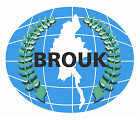As the United Nations Human Rights Council prepares to discuss the findings contained in a report by the UN High Commissioner for Human Rights on: ‘Rohingya Muslims and other minorities in Myanmar’, released on 20th June 2016, Tun Khin, President of the Burmese Rohingya Organisation UK spoke at a side panel co-hosted by The International Peace Bureau, the Asian Forum for Human Rights and Develpoment (FORUM-ASIA) among others.
Tun Khin provided a briefing on the latest human rights and political situation of the Rohingyas in Burma during the first three months of NLD-led Government. Chris Lewa Director of Arakan Project, presented an overview of the humanitarian conditions in the IDP camps, where Rohingyas have been confined and segregated for the past four years. She said, “Access to health care is a huge problem. Due to restriction of movements, emergency patients have to be referred with police escort to a special ward in Sittwe Hospital where medical care is very poor; overcrowded shelters are on the verge of collapsing; and 120,000 displaced Rohingyas are dependent on humanitarian aid denied access to means of livelihood”. The event was attended by representatives of dozens of missions to the UN, including from the USA, EU and OIC.
“The United Nations concluded that human rights violations against the Rohingya could be crimes against humanity, and must now set up an investigation into these crimes” said Tun Khin President of Burmese Rohingya Organisation UK. “If the UN fails to investigate violations against the Rohingya it would be equivalent to a police force saying a murder has been committed, but we are not going to investigate it.”
Tun Khin stated that the new national verification card (NVC) which the new NLD led government has tried to impose on Rohingya without consultation will not be accepted. “It’s not just the Rohingya, no ethnic group in Burma would accept being given these cards” he said.. “The cards are not a step in the right direction. They are an attempt by the government to be seen to be doing something while avoiding addressing difficult issues.
BROUK also stated that when members of the international community stop using the word Rohingya, it is not a neutral step to facilitate a calmer situation. Instead it gives encouragement to racists and nationalists and makes the situation worse. “We are Rohingya and we want the international community to call us Rohingya. We strongly object to the new term Muslims in Rakhine State which the NLD led government is trying to impose on us, denying our identity, which is a key part of the denial of our rights.
Tun Khin stated that delaying difficult and controversial decisions only prolongs the problem and the suffering. As the continued campaigns against the Rohingya, and renewed anti-Muslim violence have demonstrated, the NLD led government does not have time or space to delay action. Action and strong leadership is needed now to stop hatred, violence and discrimination escalating.
Tun Khin expressed disappointment that despite the United Nations issuing a report stating that human rights violations suffered by our people could amount to crimes against humanity, no country has publicly called for action to end these crimes.
We urge UN Human Rights Council to take note of the recommendations in the High Commissioner’s Report and call on the NLD led government to implement the following key steps immediately;
First: Action on hate speech. Those inciting hatred and violence against Rohingya, Muslims and other ethnic and religious minorities have continued to do so with impunity under the NLD led government.
Second: The immediate lifting off all restrictions on freedom of movement and on humanitarian access to Rohingya, Rakhine and other communities in Rakhine State. These restrictions, which have been continued by the NLD led government, are costing lives. There can be no excuse for keeping them in place.
Third: Bringing the 1982 citizenship law into line with international law and Burma’s UN treaty obligations. This law lies at the root of many of the human rights violations and discrimination suffered by the Rohingya. It is inherently unfair and discriminatory.
Chris Lewa also urged the Human Rights Council to follow up on the recommendations listed in the High Commissioner’s report and to include them in the March 2017 Human Rights Council resolution on Burma.
